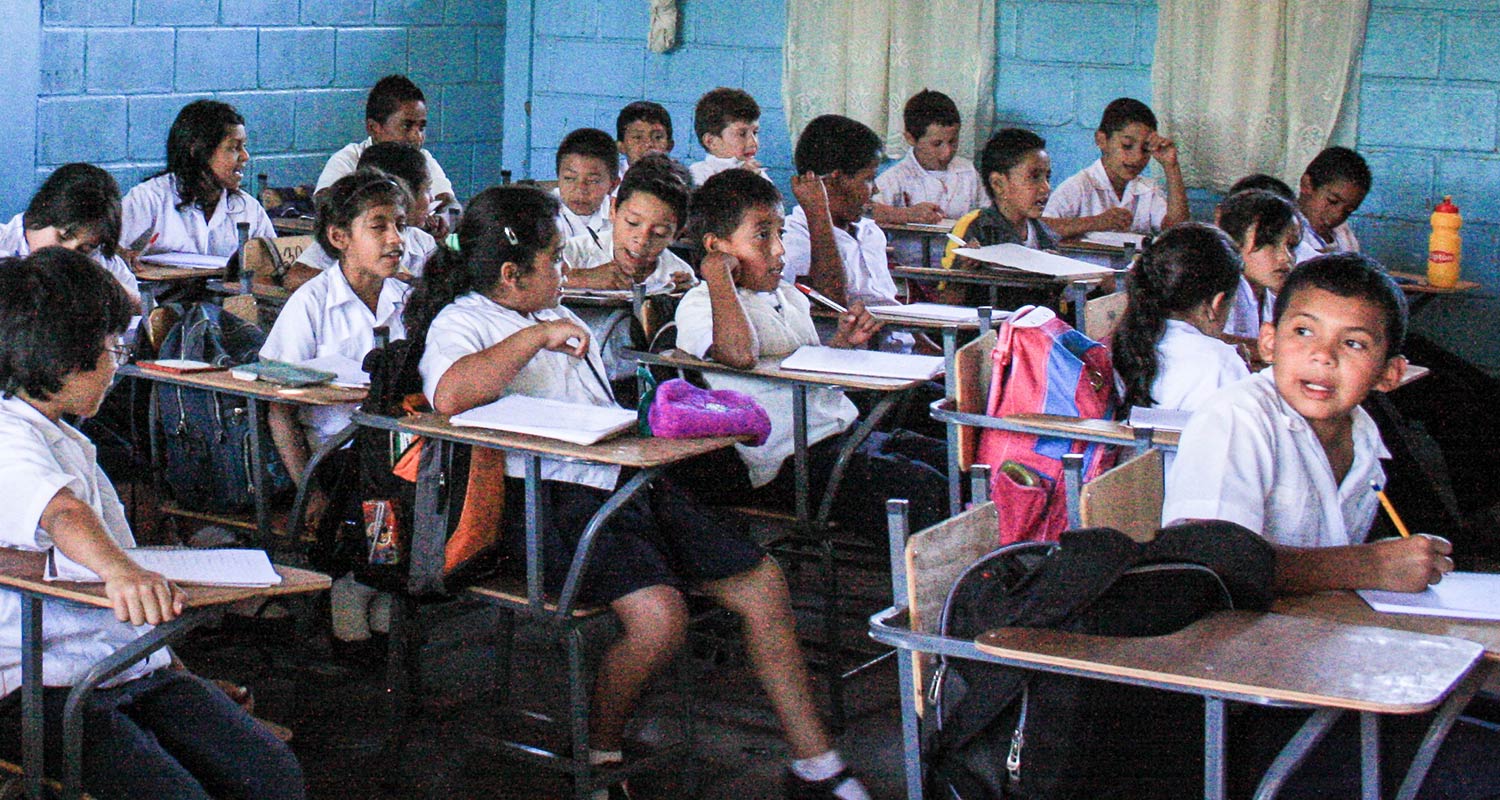Public education is the latest service to suffer as a result of the political conflict in Honduras. On 16 October 2009, in spite of protests and appeals from Parent Associations to the teachers to ignore the mandate ordered by the interim government and extend the school year, Honduran public schools closed their doors approximately six weeks behind schedule.
The interim government ordered an early closing to the school year in preparation for general elections on 29 November 2009. According to Honduran law, polling takes place on the last Sunday in November at public schools, which need to be free for at least 10 days before the elections. As it currently stands, Honduran teachers will have until 31 October 2009 to take care of administrative tasks and wrap up the previous school year before vacating the schools completely by 1 November.
The culmination of classes marks a premature end to what has been a tumultuous academic year. Schools in Honduras had been operating only intermittently since the ousting of Manuel Zelaya on 28 June 2009. A combination of union-mandated teacher strikes and general uncertainty have resulted in estimates of up to 100 school days lost during the entire academic year. This number represents half the length of a normal school year in Honduras.
In spite of working less and not being responsible for giving final examinations in accordance with the typical end of the school year, Honduran teachers will be paid as if they had completed the entire academic year. Politics, not performance, is likely behind this. According to Warren Post, a former US State Department Official in Honduras, the Honduran teachers unions are some of the most powerful political blocs in the country. As such, they were heavily courted by ousted President Manuel Zelaya in his presidential campaign back in 2005. Since 28 June, teachers’ unions, historically at odds with Honduran governments, have been some of the strongest supporters of Zelaya’s reinstatement. Therefore, the interim government, aware of the unions’ power and political leaning, may be offering full salary and continued benefits for teachers in attempts to pacify them. According to Post, “The government’s ruling may be an attempt to preempt teachers from occupying schools in an attempt to delay or halt elections. They are saying in effect ‘You don’t have to finish your work, you don’t have to give final exams, you don’t have to flunk anyone, just please vacate the schools.’”
The efforts to bring the elections forward come at a great cost: education. According to statistics from El Proceso, a pro-Michelleti digital publication, each day of lost classes represents a loss of 50 million Honduran Lempiras (US$2.6 million). Another statistic reads that a lost school year delays a nation’s development by seven years.
Although these statistics cannot be confirmed, they do point to the fact that Honduran children and their education are suffering as a result of the internal power struggle. Rather than teaching for the sake of education, class has been used a bargaining chip that both sides have flip-flopped on in efforts to gain the upper hand. Immediately following the ousting in the first week of July, the teachers said they would not return to class until Zelaya was reinstated. Later that week, the Ministry of Public Education ordered them back to class. Three months later, the roles have reversed. The interim government wants them out, and the Honduran Teachers Union Federation (FOMH) announced plans to continue teaching as recently as 11 October 2009.
At this point, it is unclear what will happen in the upcoming weeks in Honduras. What is clear is that Honduran children have already had to bear the burden of the political infighting.

Reply